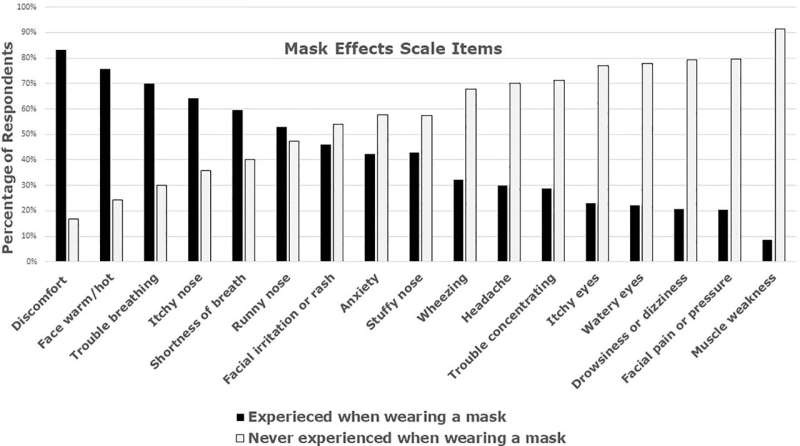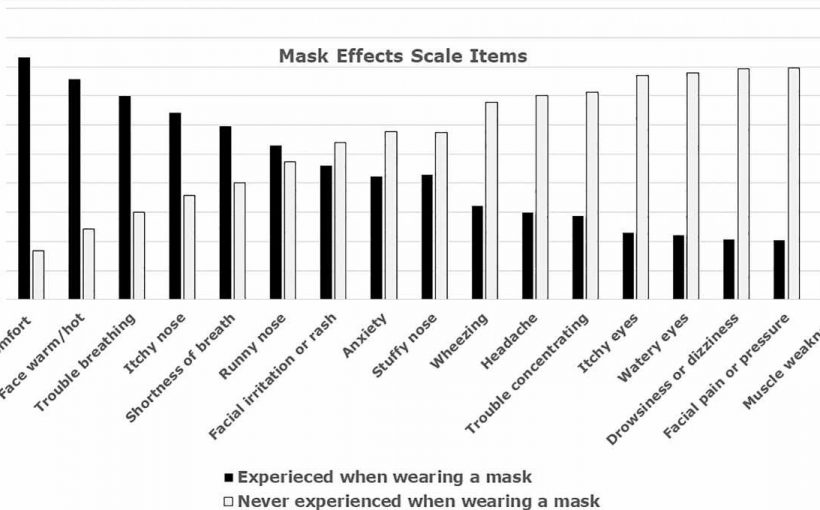
Researchers at the University of Illinois Chicago conducted an online survey of 501 adults with asthma to better understand the extent of, and the problems related to, mask use in the era of COVID-19.
Even though study participants almost uniformly adhered to mask wearing in public, 84% experienced discomfort, and 75% reported trouble breathing or shortness of breath at least a little of the time while wearing a mask.
The Mask Use Experiences, COVID-19, and Adults with Asthma: A Mixed-Methods Approach is published in the January 2022 issue of The Journal of Allergy and Clinical Immunology: In Practice. One of the study’s authors is Dr. Sharmilee Nyenhuis, an associate professor in the UIC College of Medicine.
Researchers developed a new Mask Use in Adults with Asthma online survey and compiled a Mask Effects Scale and measured asthma control.
The study team found an association between poorer asthma control and higher MES (more symptoms while wearing a mask). This finding is likely due to the fact that those with uncontrolled asthma are more likely to experience shortness of breath and trouble breathing even without a mask, Nyenhuis said. Additionally, the authors found that the longer a person wears a mask they are more likely to have a higher MES.
In addition to answering survey questions, participants were asked open-ended questions about their experiences wearing masks, as well as their recommendations for others with asthma.
When asked to comment on their experiences wearing a mask, 45% indicated they had problems breathing and increased coughing when wearing a mask. However, 39% indicated they had no change in their asthma when wearing a mask. Notably, 5% responded they did not always wear a mask, and 2% indicated they had improved asthma/asthma symptoms when wearing a mask—likely because the mask protected them against pollen/pollutants that triggered their asthma, according to the study.
“The majority of those surveyed said about masks, “Just wear it,'” Nyenhuis said.
Other survey participant suggestions include:
- Take the time to find a comfortable, well-fitting mask. “Wear cotton masks as they are lightweight and more moisture-wicking than synthetic materials.” “Surgical masks feel better than cloth masks, easier to breathe.”
- Keep an inhaler with you. “Stay on top of your meds.”
- Take a mask break and use breathing techniques. “Stay calm and take frequent breaks in circumstances where you can take your mask off for a few minutes.” “Make appropriate ADA accommodations with your employer for scheduled mask-off breaks.”
“Taking a mask break is important. It allows for opportunities to take large, deep breaths and do some breathing techniques,” Nyenhuis said. Employers should consider making accommodations for those with asthma to take safe mask breaks.
Other suggestions from the survey participants include using a pulse oximeter to show yourself you are getting enough oxygen when wearing a mask; make sure your mask is room temperature if cold triggers your asthma; and apologize to others around you if you must cough and verbalize you have asthma; and, stay home as much as possible.
Nyenhuis said there is no reason a person with asthma should not wear a mask, but those who have concerns about wearing a mask should contact their physician.
Source: Read Full Article
